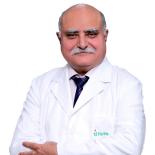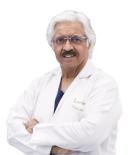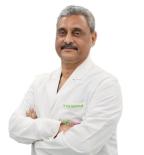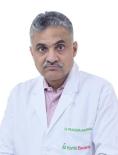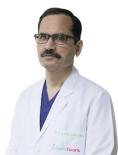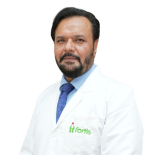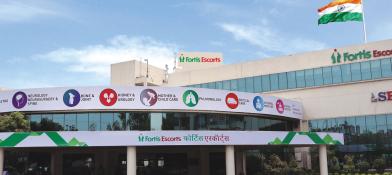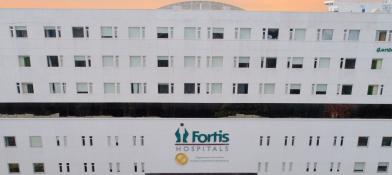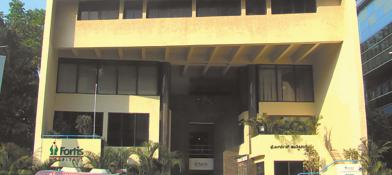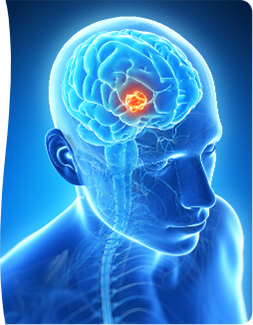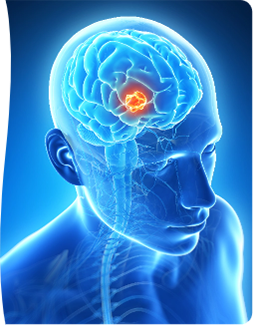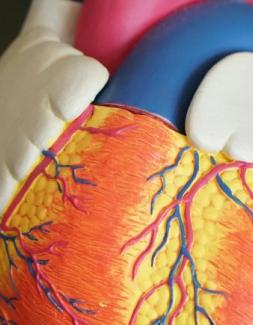About Cardiac Sciences
The term cardiology is derived from the Greek words ‘cardia’ which refers to the heart and ‘logy’ meaning the study of. Cardiology is the study and treatment of disorders of the heart and the blood vessels. The field includes medical diagnosis and treatment of congenital heart defects, coronary artery disease, heart failure, valvular heart disease and electrophysiology. A person with heart disease or cardiovascular disease is usually referred to a cardiologist. The cardiology team is highly experienced in diagnosing and treating diseases of the cardiovascular system. The cardiologist advises some tests, and may perform some procedures, such as heart catheterizations, angioplasty, or inserting a pacemaker in order to achieve accurate diagnosis of the problem. There are three main types of cardiology procedures: Invasive, Non-invasive and Interventional.
- Invasive cardiology uses open or minimally-invasive surgery techniques to identify and treat structural or electrical abnormalities within the heart structure. Common types of invasive cardiology include:
- Angioplasty: When plaque clogs the arteries, it becomes difficult for blood to flow normally. Angioplasty inserts a tiny balloon into the clogged vein and pushes plaque against the walls, allowing for increased blood flow.
- Stenting: Stenting is usually done in conjunction with angioplasty. A cardiac stent is a small metal coil which permanently holds a clogged vein open.
- Non-invasive cardiology identifies heart problems without using any needles, fluids, or other instruments inserted into the body. Non-invasive cardiologists utilize techniques such as:
- Nuclear cardiology: A non-invasive study of cardiovascular disorders by means of various types of imaging which may use radioactive elements.
- Echocardiography: The usage of ultrasound waves to create images of the heart and surrounding structures in order to identify how well the heart pumps blood, infections, and structural abnormalities.
- Cardiac electrophysiology: Study and testing of the electrical currents which generate heartbeats.
- Stress tests: Stress testing usually involves exercise which is closely monitored by the cardiologist. These exercises provide information about how a person’s heart performs under physical stress.
- Heart monitors: Heart monitors may also be called a Holter monitor or cardiac event recorder. Heart monitors are essentially tape recorders for your heart’s electrical activity over a set amount of time.
- CT scans: CT scans produce images of the affected area examined by the cardiologist for any heart diseases and atherosclerosis.
- Interventional cardiology is a non-surgical technique which uses a catheter – a small, flexible tube – to repair damaged or weakened vessels, narrowed arteries, or other affected parts of the heart structure. Common conditions treated by interventional cardiology include:
- Coronary artery disease: Narrowing of the arteries which supply the heart muscle with blood and oxygen.
- Heart valve disease: Occurs when the valves which control blood flow into the heart’s chambers are not working correctly.
- Peripheral vascular disease: Your heart can also be affected by clogged or hardened veins and arteries in the other parts of your body.
Our Team of Experts
View allMedical Procedures for Cardiac Sciences
View allBreakthrough Cases
View allOur patient’s stories
View allExplore blogs
View allExplore Videos
View all-
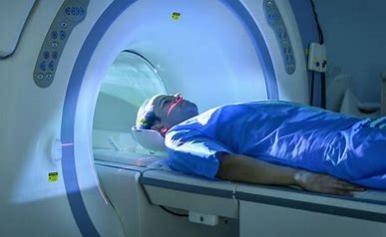 Video2
Video2 -
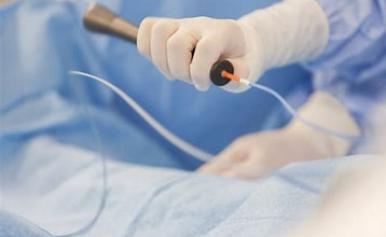 Video1
Video1
Related Specialities
Other Specialities
-
Explore Hospitals for
Fortis Cancer Institute, Defence Colony, New Delhi Fortis Memorial Research Institute, Gurgaon Fortis CDOC, Chirag Enclave, New Delhi Fortis Escorts Heart Institute, New Delhi Fortis Flt. Lt. Rajan Dhall Hospital, Vasant Kunj Fortis La Femme, Greater Kailash II, New Delhi Fortis Escorts Hospital, Faridabad Fortis Hospital, Noida Fortis Hospital, Shalimar Bagh, New Delhi Fortis Escorts Hospital, Amritsar Fortis Hospital, Mohali Fortis Escorts Hospital, Jaipur Fortis Hospital, Anandpur, Kolkata Fortis Hospital CG Road, Bangalore Fortis Hospital, Greater Noida Fortis Hospital & Kidney Institute, Gariahat, Kolkata Fortis Hospital BG Road Bangalore Fortis Nagarbhavi Bangalore Fortis Hospital, Rajajinagar, Bengaluru Fortis Hospital, Richmond Road, Bengaluru Hiranandani Fortis Hospital, Vashi, Mumbai Fortis Hospital, Mulund, Mumbai Fortis Hospital, Kalyan, Mumbai Fortis Hospital, Ludhiana S L Raheja Hospital, Mumbai Fortis Hospital Mall Road, Ludhiana Fortis Hospital,Manesar,Gurugram -
Explore Doctors for by Hospital
Doctors in Fortis Cancer Institute, Defence Colony, New Delhi Doctors in Fortis Memorial Research Institute, Gurgaon Doctors in Fortis CDOC, Chirag Enclave, New Delhi Doctors in Fortis Escorts Heart Institute, New Delhi Doctors in Fortis Flt. Lt. Rajan Dhall Hospital, Vasant Kunj Doctors in Fortis La Femme, Greater Kailash II, New Delhi Doctors in Fortis Escorts Hospital, Faridabad Doctors in Fortis Hospital, Noida Doctors in Fortis Hospital, Shalimar Bagh, New Delhi Doctors in Fortis Escorts Hospital, Amritsar Doctors in Fortis Hospital, Mohali Doctors in Fortis Escorts Hospital, Jaipur Doctors in Fortis Hospital, Anandpur, Kolkata Doctors in Fortis Hospital CG Road, Bangalore Doctors in Fortis Hospital, Greater Noida Doctors in Fortis Hospital & Kidney Institute, Gariahat, Kolkata Doctors in Fortis Hospital BG Road Bangalore Doctors in Fortis Nagarbhavi Bangalore Doctors in Fortis Hospital, Rajajinagar, Bengaluru Doctors in Fortis Hospital, Richmond Road, Bengaluru Doctors in Hiranandani Fortis Hospital, Vashi, Mumbai Doctors in Fortis Hospital, Mulund, Mumbai Doctors in Fortis Hospital, Kalyan, Mumbai Doctors in Fortis Hospital, Ludhiana Doctors in S L Raheja Hospital, Mumbai Doctors in Fortis Hospital Mall Road, Ludhiana Doctors in Fortis Hospital,Manesar,Gurugram


